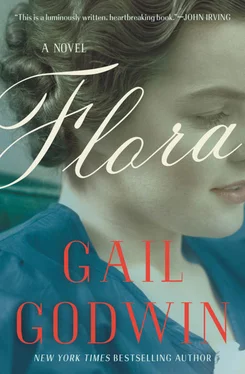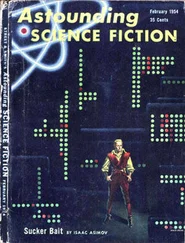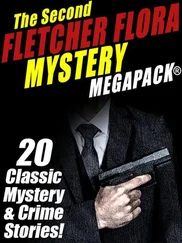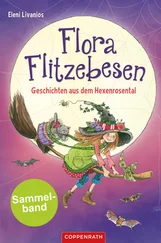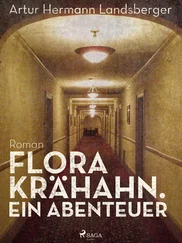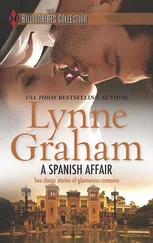At last we reached the paved road. Then you had to walk down Sunset Drive until you reached the big curve, which doubled back on itself and was so dangerous that the town had put up hairpin curve signs in both directions and a streetlight, which unfortunately got shot out at least once a month by ruffians. They came from the other side of town to shoot out this streetlight, Nonie said. When I asked her why they didn’t shoot out the streetlights on their own side of town, she said wryly, “They already have , darling.”
Just before that curve, in the woods sloping off to the right, began the shortcut that my grandfather had made to take his Recoverers down to the next paved loop of Sunset Drive, and then down a continuation of the path through more woods to the final loop, which opened onto the street of neighborhood shops if you turned south, and toward our church if you turned north.
“This is it ?” asked Flora, when we reached the shortcut. “But I don’t see any path at all.”
“I told you, it’s grown over.”
“How odd. Your father made it sound—”
“Well we’re here now,” I said irritably, “so we might as well look for where it used to be.” I plunged ahead into the overgrowth, exulting in every clawing bramble and slapping branch that came my way, a yipping Flora following close behind. Something ripped at my arm, but I crashed on, hoping it would bleed. At last I found a few of my grandfather’s descending steps, which ended abruptly at a crater deep as an open grave, bristling with roots and wild vegetation. The crater looked perfectly terrifying, and I was elated.
“Well, there’s our shortcut to church,” I said.
“Oh dear,” said Flora, coming up beside me. She was breathing hard, and I could smell her underarm perspiration. “My church shoes certainly wouldn’t make it down that . But, I mean, when did your father last use this path?”
I was on the verge of relenting about Willow Fanning when Flora wailed, “Oh, no! Your arm is bleeding!” First she tried to doctor it with a leaf and some of her spit, and then she went into what I would come to recognize as a typical Flora flagellation. It was all her fault, she should never have suggested this outing, what a fool she was—“and on the very first day of my taking care of you!”
“Don’t be silly,” I said. “It’s just a little blood. It’s good we saw it up close. I needed to see it, too, instead of just driving past it. My father was probably thinking of how it was a while ago.” Though it was gratifying to hear my voice reassuring her, I was feeling less reassured myself. Beyond my resentment at the idea of her “taking care” of me rose an unsettling thought: what if there were ways I was going to have to take care of Flora?
As we walked back to the house she asked what kinds of things I had done while staying with the Huffs.
“Oh, they had all their activities . Rachel had her tennis and her riding and her piano lessons and Mrs. Huff had her sunbathing and her magazines and her spiked lemonade.” Nonie or my father would have picked up on my sarcasm at once and joined the game, but Flora went earnestly on.
“But what did you do, Helen?”
“Oh, I swam with Rachel and things, but mostly I just thought about being back home.”
We walked uphill some more. I could feel her working up to her next question. “And, what things were you wanting to do back home?”
While I was at the Huffs’, the life of our house was going on without me. I needed to be there to register it. I felt the longer I wasn’t there, the more of myself I would lose .
Of course I didn’t say this. While I was still concocting a normal-sounding reply that would satisfy her, Flora jumped in with “Helen, I know everything has changed for you since your grandmother passed away, but it would help if I knew what in particular you like to do.”
She had interrupted my concocting process. I couldn’t come up with a single thing to say I liked to do.
When we got back to the house, Flora observed almost regretfully that it was still too early to start supper. “What did you usually do on Saturday afternoons, Helen?”
Well, if Nonie hadn’t “passed away” she would be taking her nap on her three pillows about now and I would be upstairs on the Recoverers’ west porch, reading a book or gazing at the non-view of hectic branches. But now, for the whole summer, Flora’s room opened onto this porch and so it was off-limits to me.
“Sometimes I just read in my room.” It was time to squash this dogged inquisition. “I know what,” I said, calling on Nonie’s voice again. “Why don’t we each go to our own room and replenish ourselves?”
Flora seemed tempted. “Would you like anything first? A glass of milk or a sandwich?”
“No, thank you. We ate at the Huffs’ before we went to the train station.”
“Well, you have only to ask, Helen. That’s what I’m here for. And don’t worry about church tomorrow. We’ll go in a taxi. I’ve got the money for that.”
The angle of light in my room was different from when I was usually in it. Nonie often remarked that every one of us needed to get away from other people and replenish our personal reserves. I felt my room’s resentment at my untimely entrance. To disrupt its personal replenishment as little as possible, I crept quietly onto my bed with the library book I had taken to the Huffs’ and never opened.
This author produced a continuing string of novels, all featuring a girl and a house and a mystery. There was always a historical angle as well. The librarian had told Nonie and me they were “like Nancy Drews for the more sophisticated reader.”
This novel opened in a place where it had rained heavily all day, but now at the sunset hour the clouds parted and a breath of spring air wafted through the window of a muddy little sedan car just entering the town. The driver was a girl of sixteen, and her alert Irish setter sat beside her. Piled into the rear of the car was a mound of baggage.
A girl in her own car arriving at her destination with her alert and faithful dog, her luggage, and her plan—this author’s girls always had plans, usually involving historical or family research and requiring dangerous snooping. It was the kind of story I craved, but something nagged at my peripheries. Outside the window beside my bed the sun was highlighting an unsightly row of weeds that had sprung up against the closed doors of the garage. Inside the garage was Nonie’s car. To keep the battery charged, my father had alternated driving it with driving his own, but what would happen now? Not only had he been shockingly out of date about the shortcut we were to take to church but he had gone off without making arrangements to keep Nonie’s battery alive.
FLORA, I WOULDlearn, went into a kind of trance when she prepared our meals. She would never come right out and tell me to hush, but if I talked she would simply hum or nod, remaining inside her bubble of chopping or stirring or turning meat in the pan. Could she not do two things at once, or did she need to tune out all distractions to remember how she’d been taught to cook?
The first evening I was all set to be sociable, as I had been with Nonie and more recently my father when they were making our meals, but I soon saw that it didn’t matter much to Flora whether I kept up a running commentary or stayed quiet. I wondered whether she might be the slightest bit slow-witted, and even anticipated with a superior thrill how I would have to get us through the summer without outsiders suspecting.
We ate in the dining room. At the last minute my father had removed the papers that were piled there. We had answered all of the condolence notes that had come in so far. Except, of course, the one from the old mongrel, which my father had crushed in his pocket. On Monday the postman would bump up our driveway with more mail, and maybe a letter from my father. Already I was fast forgetting his unsavory side.
Читать дальше
